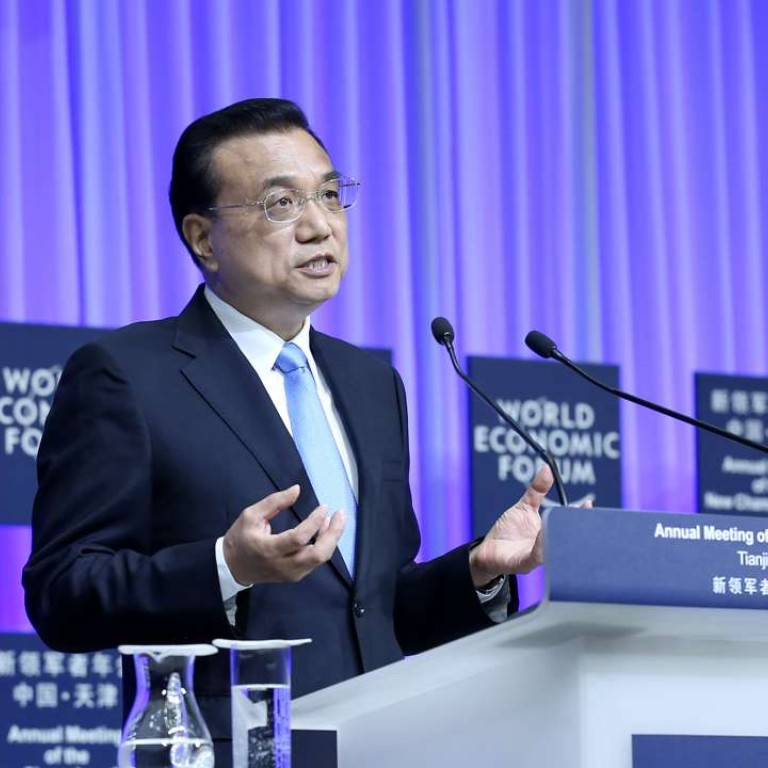
China won’t allow ‘drastic changes’ in markets: Premier Li Keqiang
China would not allow “drastic changes in the capital markets”, Premier Li Keqiang said on Tuesday, in his latest attempt to calm global market jitters prompted by Britain’s vote to leave the European Union.
He called for joint efforts to lift confidence and prevent panic from spreading in the wake of the “Brexit” vote.
China would contribute by maintaining stability in its domestic financial and capital markets, Li told business executives at the World Economic Forum in Tianjin.
China emerges unscathed from Brexit, at least for now, experts say
“Just like in China’s economy, it is inevitable to have short-term volatility in some sectors of the capital market, but we should prevent skyrocketing or precipitous fluctuations,” Li said. He said systemic and regional financial risks must be avoided when developing the domestic capital market.
He also pledged to reform and improve China’s financial regulatory regime and to prevent the cross-contamination of financial risks.
“Meanwhile, we will also handle individual default cases based on market rules and global practises,” he said.
Li said China still needed to attract foreign funds and would further loosen conditions for the entry of foreign capital into the Chinese market and create a level playing field for foreign firms.
The impact of Brexit has continued to shake global markets since the result of the vote was announced on Friday.
China-led AIIB ready to help soothe Brexit stresses
Zhu Min, vice-president of the International Monetary Fund, warned in a panel discussion at the forum that Brexit had brought huge political uncertainty, which would feed through to the market and increase volatility.
He said that in an unstable political situation there would be “no room to carry out structural reform”, which could drag on the global economy.
Some experts have deemed Brexit a blow to globalisation. Huang Yiping, a professor at Peking University and a member of the People’s Bank of China’s monetary policy committee, said at the forum the backlash against globalisation might become more serious and Brexit might be only the beginning.
Mehmet Simsek, deputy prime minister of Turkey, said Brexit might cloud negotiations between the United States and the EU on the Transatlantic Trade and Investment Partnership.

